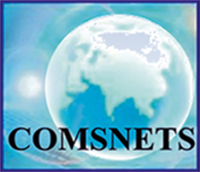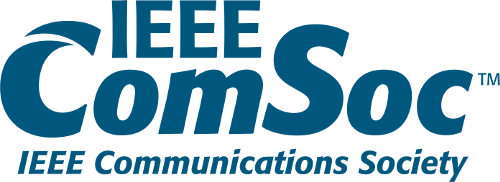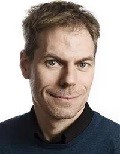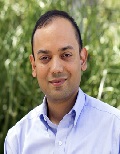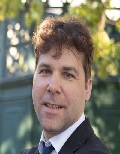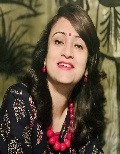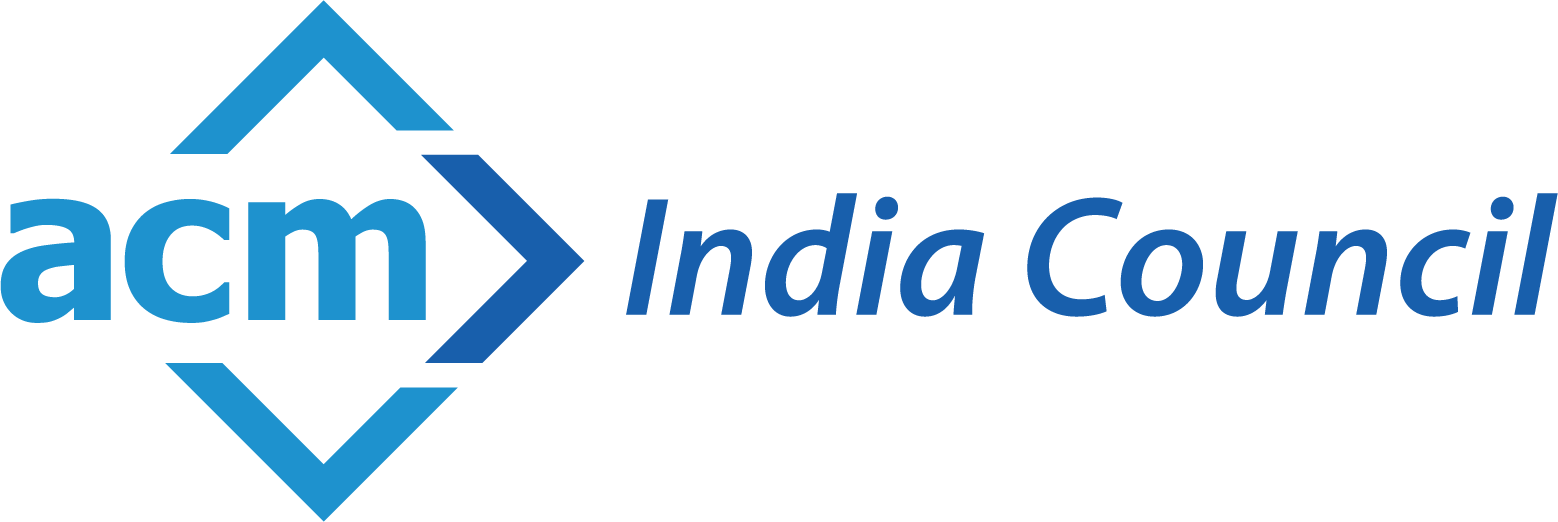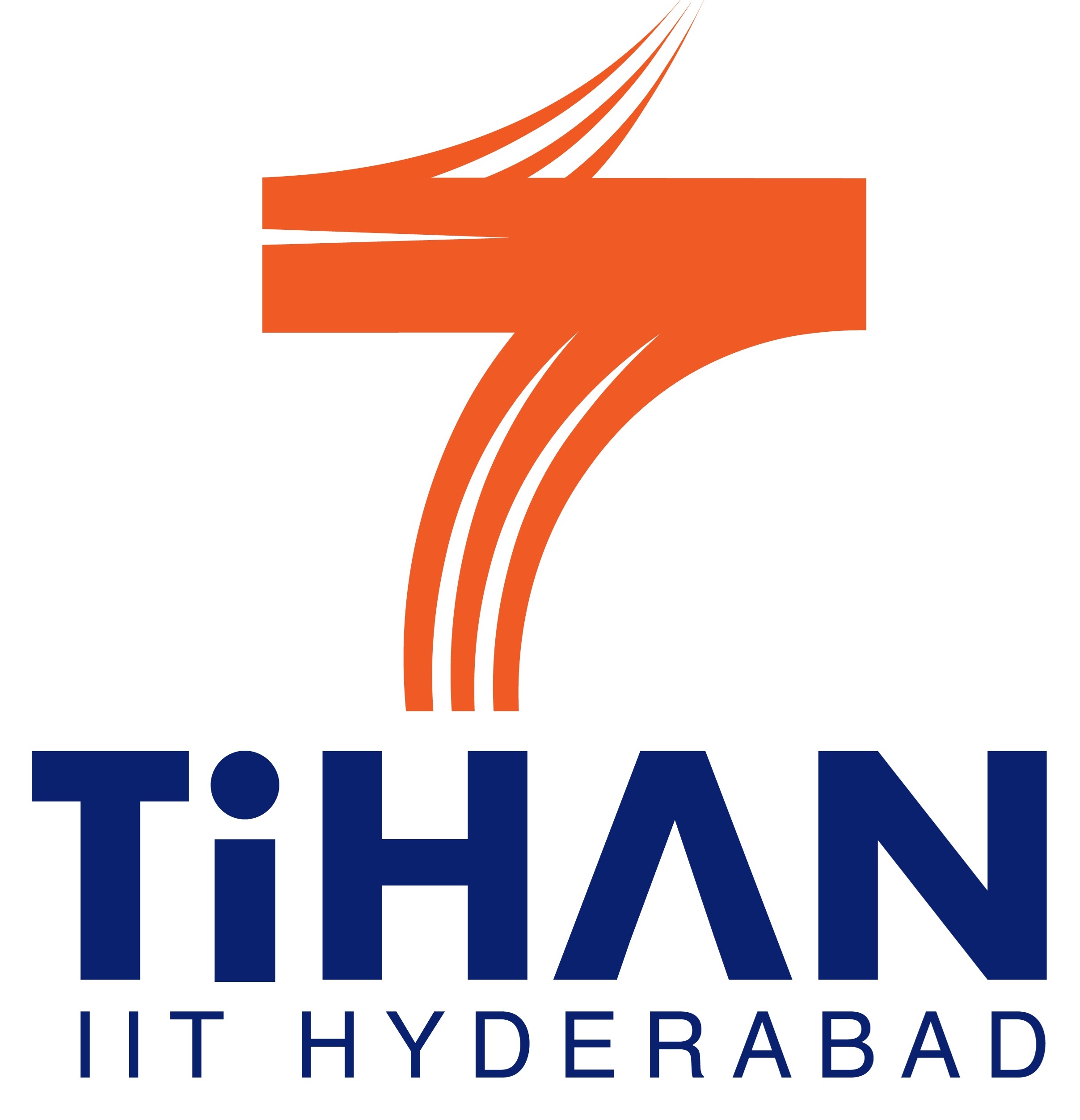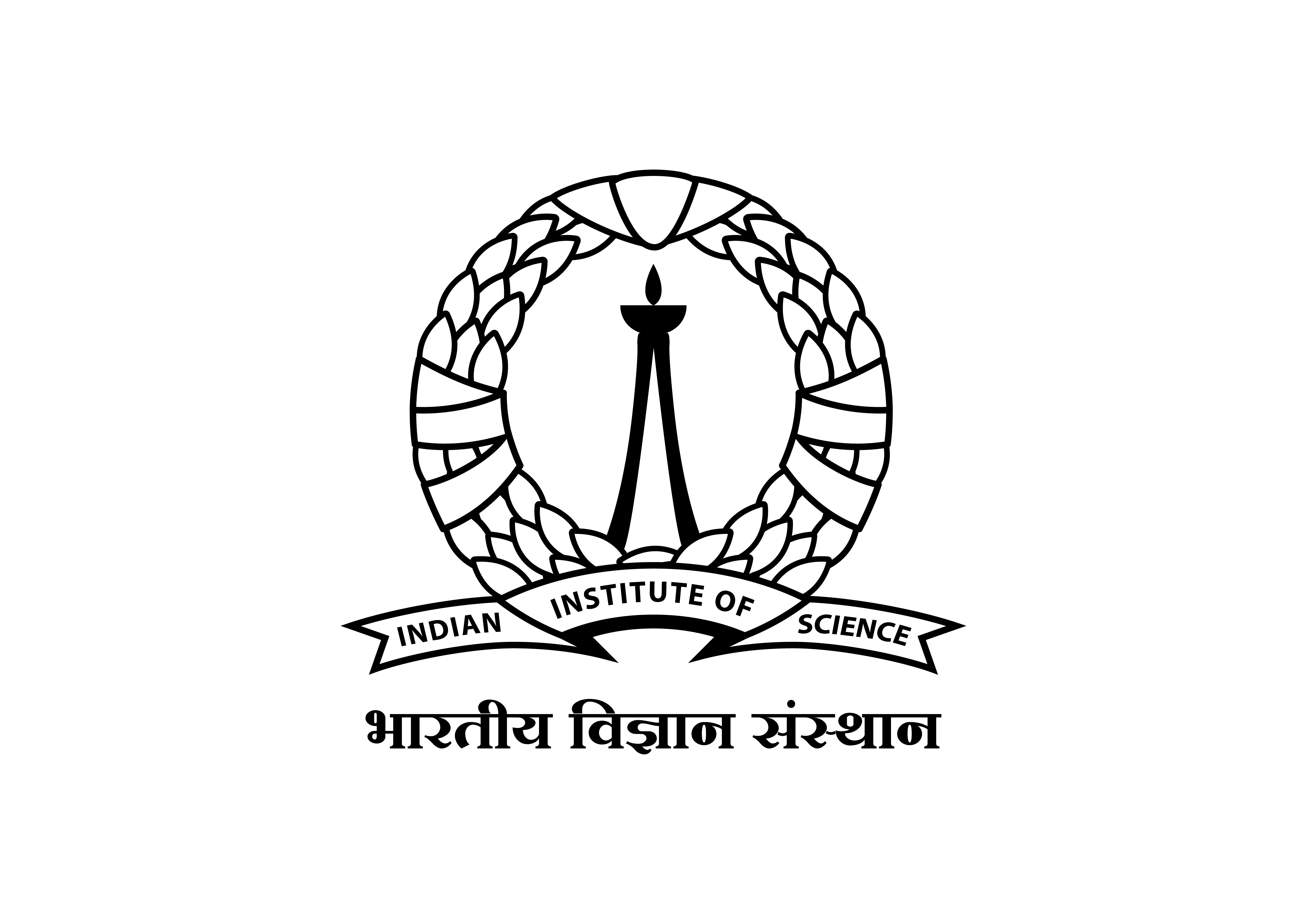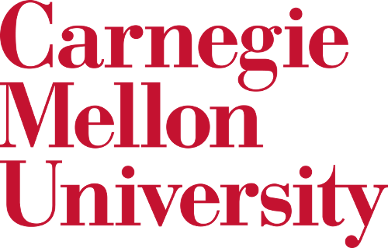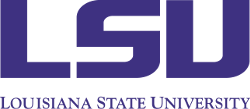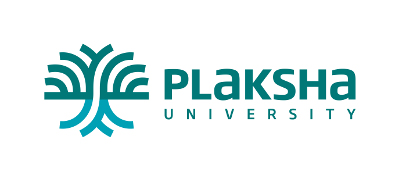QCom(P) Workshop: Workshop on Quantum Communication and Computing
Event Date: Sunday, 7 January 2024
Schedule
| Sunday, 7 January 2024 | |||
| Venue: Indian Affairs - The Chancery Pavilion (Hotel), Bengaluru, India | |||
| Time | Title | Speaker/Authors | |
| 09:00 - 09:15 | Registration / Welcome by Workshop Chairs | ||
| Session 1 | |||
| 09:15 - 09:25 | Inauguration note | ||
| 09:25 - 10:05 | Quantum experiments with satellite technology: towards a quantum internet |
Urbasi Sinha | |
| 10:05 - 10:45 | Continuous-variable quantum computing and communication |
Ulrik L Andersen | |
| 10:45 - 11:00 | Contributed talk: Laser-integrated Entirely On-chip Turnkey Quantum Photonic Sources | Raktim Haldar | |
| 11:00-11:30 | Tea Break | ||
| Session 2 | |||
| 11:30 - 12:10 | Quantum Cryptography on Earth and from Space |
Christoph Marquardt | |
| 12:10 - 12:30 | Invited talk by Womanium Quantum | Vardaan Sahgal | |
| 12:30 - 12:45 | Contributed talk: A Comparative Study and Analysis of Quantum Random Number Generator with True Random Number Generator | Shashi Kant Pandey | |
| 12:45 - 13:00 | Convergence Analysis of Opto-Electronic Oscillator based Coherent Ising Machines | Sayantan Pramanik | |
| 13:00 - 14:00 | Lunch | ||
| Session 3 | |||
| 14:00 - 14:40 | Transceiver designs to attain the capacity limit of quantum and classical communications | Saikat Guha | |
| 14:40 - 15:55 | Contributed talk: Free Space Quantum Key Distribution using the Differential Phase Shift Protocol in Urban Daylight | Deepika Aggarwal | |
| 14:55 - 15:10 | Contributed talk: Quantum Key Distribution Over Existing Optical Fibre Carrying Traffic | Arka Mukherjee | |
| 15:10 - 15:30 | Poster session | ||
| 15:30 - 16:00 | Tea/Coffee break (along with poster session) | ||
| 16:00 - 16:40 | Poster session | ||
| Session 4 | |||
| 16:45 - 17:00 | Contributed talk: Semi-self-testing Randomness Generation with Untrusted Measurement | Hamid Tebyanian | |
| 17:00 - 18:00 | Industry session | TCS, CDAC, Quanfluence, ID Quantique | |
| 18:00 - 18:10 | Best paper award announcement & sponsorship acknowledgement | ||
| 18:10 - 18:20 | Closing remarks | ||
Accepted Papers
- QC-Stack: A Layered Reference Model for Quantum Computers
Ashutosh Bhatia (Birla Institute of Technology and Science, Pilani, India); Sainath Bitragunta and Kamlesh Tiwari (BITS Pilani, India) - Quantum Key Distribution Over Existing Optical Fibre Carrying Traffic
Arka Mukherjee and Vivek Kumar (Centre for Development of Telematics, India); Prasanta Halder (C-DOT, India); Ankit Kumar, Roshan Lal Sharma, Prashant Kumar Rathore and Atul Gupta (Centre for Development of Telematics, India); Pankaj Kumar Dalela (C-DOT, India); Rajkumar Upadhyay (Centre for Development of Telematics, India) - Redesign of the Last Mile Delivery Network using Quantum Alternating Operator Ansatz
Gajendra Malviya (TCS Research & Tata Consultancy Services, India); Priyank Agarwal (IIT Bombay Mumbai, India); Sudhir Kumar Sinha (Tata Consultancy Services Ltd., India) - Free Space Quantum Key Distribution using the Differential Phase Shift Protocol in Urban Daylight
Deepika Aggarwal (QuNu Labs Pvt. Ltd, India); Sruthi Chennuri, Rajesh Kumar Krishnan and Dilip Singh (QuNu Labs Pvt. Ltd., India) - Semi-self-testing Randomness Generation with Untrusted Measurement
Hamid Tebyanian (University of York, United Kingdom (Great Britain)) - Quantum Autoencoders for Learning Quantum Channel Codes
Lakshika Rathi and Stephen DiAdamo (Cisco Quantum Lab, Germany); Alireza Shabani (Cisco, USA) - Time-Series Forecasting using Continuous Variables-Based Quantum Neural Networks
Prabhat Anand, M Girish Chandra and Ankit Khandelwal (Tata Consultancy Services, India) - A Comparative Study and Analysis of Quantum Random Number Generator with True Random Number Generator
Shashi Kant Pandey and R Thanga Gnana Jenef (SETS Chennai, India) - A Survey of Classical And Quantum Sequence Models
I-Chi Chen (Iowa State University. USA); Harshdeep Singh (IIT Kharagpur, India); Anu Vadali (IIIT Hyderabad, India); Brian Quanz (IBM, USA); Kavitha Yogaraj (IBM Quantum & IBM Research, India) - Generative learning with Qopula circuits
Amey Bhatuse (Veermata Jijabai Technological Institute, India); Ankit Khandelwal and M Girish Chandra (Tata Consultancy Services, India) - Novel Objective Function and Expectation Value Estimation Method for the Variational Quantum Singular Value Decomposition Algorithm
Jezer Jojo Vallivattam (Indian Institute of Science Education and Research Pune & Tata Consultancy Services, India); Ankit Khandelwal and M Girish Chandra (Tata Consultancy Services, India) - Laser-integrated Entirely On-chip Turnkey Quantum Photonic Sources
Raktim Haldar (Institute of Photonics Leibniz University Hannover, Germany); Hatam Mahmudlu (Leibniz University Hannover Germany, Germany); Robert Johanning and Anahita Khodadad Kashi (Leibniz University Hannover, Germany); Albert Van Rees (University of Twente, The Netherlands); Jörn Epping (LioniX International BV, The Netherlands); Klaus-J. Boller (University of Twente, The Netherlands); Michael Kues (Leibniz University Hannover, Germany) - Derivation of Atmospheric Refractive Index Structure Parameter (Cn 2) Profile with Radiosonde Data for Quantum Communication Systems
Surya Narayana Murthy Tummala (FLAT 401, SRI VENKATA SAI RESIDENCY, BESIDE SAIBABA TEMPLE VUDA COLONY PHASE II & JNTUK, India); K Veera Raju (JNTUK KAKINADA, India); Devanaboyina Venkata Ratnam (K L University, Greenfields, India) - `Complementarity' in paraxial and non-paraxial optical beams
Abhinash K Roy (Macquarie University, Australia); Nitish K. Chandra (University of Pittsburgh, USA); Soumik Mahanti (Indian Institute of Science Education and Research Kolkata, India); Prasanta K. Panigrahi (Indian Institute of Science Education & Research, Kolkata, India) - Resource-Efficient Quantum Circuits for Molecular Simulations: A Case Study of Umbrella Inversion in Ammonia
Nirmal M R (TCS Research, India); Sharma S. R. K. C. Yamijala, Kalpak Ghosh and Sumit Kumar (Indian Institute of Technology Madras, India); Manoj Nambiar (Tata Consultancy Services & Institute of Electrical and Electronics Engineers, India) - Protein Secondary Structure Class Prediction using Quantum Entanglement inspired Word2Ket Embeddings
Gaurang Subhash Belekar (IIIT Dharwad, India); Naman Srivastava and Neel Ninad Shahakar (IIITDharwad, India); Rishi Koushik Reddy Thippireddy and Ankur De (IIIT Dharwad, India); Manjunath K Vanahalli (Indian Institute of Information Technology Dharwad); Sanjay S Bankapur (National Institute of Technology Puducherry, India) - Preliminary Implementation of Toeplitz Hashing on Processor, Co-Processor and SoC
Guru Satya Dattatreya Pandeeti (Centre for Development of Advanced Computing (C-DAC) Pune, India); Janhvi Dixit, Asif Hussain, Dibya Prakash Behera and Umang Dubey (Centre for Development of Advanced Computing Pune, India); Anindita Banerjee (Centre for Development of Advanced Computing, India); Samrit Kumar Maity (CDAC, India); Manish Modani (NVIDIA Pune, India) - A Quantum Approach to solve N-Queens Problem
Santhosh G s (Sri Sivasubramaniya Nadar College of Engineering, India); Piyush Joshi (Indian Space Research Organisation, India); Ayan Barui (Indian Institutes of Science Education and Research Kolkata, India); Prasanta K. Panigrahi (Indian Institute of Science Education & Research, Kolkata, India) - Twin field QKD scheme with 3-pulse Differential Phase Encoding
Nilesh Sharma (India Institute of Technology Madras, India); Valliamai Ramanathan (Indian Institute of Technology, Madras, India); Prabha Mandayam (Indian Institute of Technology Madras, India); Anil Prabhakar (IIT Madras, India) - Quantum-Enhanced Resilient Reinforcement Learning Using Causal Inference
Namasivayam Gomathi Sankar (Indian Institute of Science Education and Research & Tata Consultancy Services, India); Ankit Khandelwal and M Girish Chandra (Tata Consultancy Services, India) - A modified order-finding algorithm for NISQ devices
Debjyoti Biswas, Sourav Dutta, Shrikant Utagi and Prabha Mandayam (Indian Institute of Technology Madras, India) - Design and Modeling of a PAT System for Freespace Optical Links in Quantum Key Distribution
Mallikarjuna Korrapati (Qunu Labs Pvt. Ltd., India); Pranab Dutta, Kushal Patel, Korak Biswas and S Sagar Maurya (GDQ Labs, India); Deepika Aggarwal (QuNu Labs Pvt. Ltd, India); Sruthi Chennuri and Rajesh Kumar Krishnan (QuNu Labs Pvt. Ltd., India) - Convergence analysis of opto-electronic oscillator based coherent Ising machines
Sayantan Pramanik (Tata Consultancy Services, India); Sourav Chatterjee (TCS, India); Oza Harsh Kumar (Indian Institute of Science, India) - MetQuan - A comprehensive toolkit for variational quantum sensing and metrology
Kunal Sinha (Avoma); Rajas Dalvi (Indian Institute of Space Science and Technology, Thiruvananthapuram & TCS Research, India); M Girish Chandra (Tata Consultancy Services, India); Sourav Chatterjee (TCS, India)
Important Dates
| Manuscript Submission Due: |
| Notification of Acceptance: 3rd December 2023 |
| Camera-ready Submission: 10th December 2023 |
| Workshop Date: 7th January 2024 |
Paper submission link: https://edas.info/N31574
The 20th century, often referred to as the information age, witnessed the first quantum revolution with the invention of transistors, superconducting levitation, atomic clocks, and superfluidity. There is a broad consensus that we are now at the cusp of a second quantum revolution, and that the 21st century will be even more disruptive with the development of new quantum technologies. Exploiting quantum resources such as superposition and entanglement, we can radically transform technologies from communication to computing. For instance, in the communication domain, quantum physics can offer the ultimate (information-theoretic) security; while for certain problems in computing, quantum computers can potentially offer speed-ups that are unattainable by their classical counterparts. The technological readiness levels of these offerings are improving so rapidly that some of them have already become commercially viable.
With the 2022 Nobel prize in Physics also acknowledging the importance of such technologies pivoted on quantum information science, the 16th edition of COMSNETS conference is perfectly suited to launch the International Workshop on Quantum Communication and Computing -- QCom(P). The aim of this workshop is to bring together quantum researchers, scientists, engineers, entrepreneurs, developers, students, practitioners, educators, and programmers, from both academia and industry, working in this field. In this context, the workshop also intends to bridge the gap between the academic research in quantum computing and communication, and the industrial requirements and developments in these topics. Prospective participants are invited to submit their research contributions in the form of articles, surveys, tutorials, work-in-progress reports, extended abstracts, etc. that range from breakthrough ideas to real-world applications. This workshop would enable participants to present and discuss their accepted submissions via contributed talks and poster presentations. QCom(P) features both experimental and theoretical presentations. This workshop also comprises keynote addresses and invited talks on areas deemed topical and of special interest to the attendees. Finally, the workshop, along with a dedicated industry session, aims to serve as a forum to exchange ideas, present new results, connect and foster collaborations.
The topics of interest include but are not limited to:
- Quantum information theory
- Quantum communication and networks
- Quantum cryptography and post-quantum cryptography
- Quantum estimation and detection
- Quantum computing models and quantum complexity theory
- Quantum algorithms for NISQ and beyond
- Hybrid gate-annealer-classical computing
- Software stacks, tools and programming languages for quantum-enhanced computing
- Quantum machine learning and artificial intelligence
- Quantum-enhanced optimization
- Quantum simulations and quantum chemistry
- Quantum-enhanced solutions for different applications and domains
- Quantum error correction and fault-tolerant quantum computing
- Hardware, platforms and architectures for quantum and hybrid computing
- Networked & distributed quantum computing and sensing
- Quantum for Blockchain and IoT
- Benchmarking in the areas of quantum communication and computing
- Quantum-inspired computing architectures
Submission guidelines:
- Submissions must be no greater than 6 pages in length including all figures, tables, and references and must be a PDF file. A minimum number of 3 pages are required.
- Submissions must be original work that has not been previously published or under review at another conference or journal. Submissions are expected to articulate a non-technical, clear and insightful description of the main idea and results, their impact, and their importance.
- Reviews will be double-blind: authors name and affiliation should not be included in the submission.
- Submissions must follow the formatting guidelines as given on IEEE Website. Those that do not meet the size and formatting requirements will not be reviewed.
- All workshop papers (full papers - both regular and invited) will appear in conference proceedings and be submitted to IEEE Xplore as well as other Abstracting and Indexing (A&I) databases.
- All papers must be submitted as an Adobe Portable Document Format (PDF) document and uploaded through the QCom(P) Workshop submission site on EDAS.
Keynote Speakers
Ulrik Lund Andersen
Professor, Technical University of Denmark (DTU), DenmarkVisit Homepage
Visit Google Scholar Page
Ulrik Lund Andersen is a full professor in quantum optics and quantum information, heading the section for Quantum Physics and Information Technology (QPIT) and leading the Danish Center of Excellence on Macroscopic Quantum States (bigQ) from 2017. He is a member of the Quantum Community Network under the EU quantum flagship program. Over the course of his career, he has made a very broad range of significant contributions to quantum optics, technology, and information including the development of new techniques to generate, control and optimally measure non-classical states of light (Gaussian, non-Gaussian and entangled states).
Saikat Guha
Professor, University of Arizona, USAVisit Homepage
Visit Google Scholar Page
Saikat Guha is a Peyghambarian Endowed Chair Professor of Optical Sciences at the University of Arizona. He is also the Director of the NSF Engineering Research Center for Quantum Networks (CQN). Saikat’s research interests are in the quantum limits of optical communications and quantum-secured communications (rate) and optical sensing (resolution). He has also been lately interested in continuous variable photonic quantum computing, and quantum networks. He was one of the founding members of the Quantum Information Processing group at BBN, formed in 2009. Saikat received the Raytheon 2011 Excellence in Engineering and Technology Award, Raytheon’s highest technical honor. He was a co-recipient of an honorable mention in NSA’s 2016 Cybersecurity Best Paper Award for a paper on Quantum-Secure Covert Communication on Bosonic Channels, which he supervised. He was a recipient of Anita Jones Entrepreneurial Award 2013 from BBN Technologies, a co-recipient of a NASA Tech Brief Award for his work on Phase-conjugate receiver for Gaussian-state quantum illumination, and received the Raymie Stata Award for outstanding performance as Teaching Assistant for Signals and Systems, Fall 2005, from the Department of Electrical Engineering and Computer Science, MIT. Saikat was a member of India’s first team to the International Physics Olympiad at Reykjavik in 1998, where he received an Honorable Mention and the European Physical Society (EPS) Award for the experimental component. He is a Senior Member of the IEEE.
Christoph Marquardt
Professor, Max-Planck-Institute for the Science of Light, Erlangen, GermanyVisit Homepage
Visit Google Scholar Page
Christoph Marquardt owns the Chair of Optical Quantum Technologies at the Friedrich-Alexander-Universität Erlangen-Nürnberg and is the head of the quantum information processing group at the Max Planck Institute for the Science of Light in Erlangen. The topics of his research cover a broad range of quantum optics and quantum information experiments, from nonlinear photonics to satellite-based quantum key distribution. Christoph Marquardt served in advisory groups for the European Union and German government and is a co-founder of the start-up KEEQuant. He is active in several EU and national quantum communication research projects and is taking care of the architecture of the German BMBF QuNet initiative on quantum key distribution.
Urbasi Sinha
Professor, Raman Research Institute (RRI), IndiaVisit Homepage
Visit Google Scholar Page
Urbasi Sinha is a full professor and head of the Quantum Information and Computing (QuIC) laboratory at the Raman Research Institute (RRI) in Bangalore, India. She is a Simons Emmy Noether Fellow at the Perimeter Institute, Canada as well as an associate faculty member at the Institute for Quantum Computing (IQC), University of Waterloo, Canada, and the Centre for Quantum Information and Quantum Control, University of Toronto, Canada. Her lab at RRI specializes in experiments on photonic quantum information processing including quantum computing and quantum communication, primarily using single and entangled photons. She is heading India’s first project on satellite-based secure quantum communications. Her scientific recognitions include the Homi Bhabha Fellowship in the year 2017, the 2018 ICTP-ICO Gallieno Denardo Award in Optics, being recognized as one of Asia’s Top 100 scientists by the Asian Scientist for the year 2019 as well as the Simon’s Emmy Noether Fellowship at the Perimeter Institute, Canada. In August 2020, she led the two-member winning team as a mentor, at the World Skills International Competition in Quantum Technology at the BRICS Future Skills Challenge, organized by the Russian Quantum Centre in Moscow, Russia with competitors from several countries worldwide. She won the ASSOCHAM Women in Cyber: Making a Difference award in the category “Cyber - Leading from the front” in 2021. Recently, she has been awarded the prestigious 26th SIES Chandrasekarendra Saraswathi National Eminence award for the year 2023 in the domain of science and technology.
Technical Program Committee (TPC):
- Alessio Avella, Istituto Nazionale di Ricerca Metrologica (INRIM), Italy
- Anindita Banerjee, Centre for Development of Advanced Computing (C-DAC), India
- Debajyoti Bera, Indraprastha Institute of Information Technology (IIIT-D), India
- Shantanav Chakraborty, International Institute of Information Technology, Hyderabad (IIIT-H), India
- Soumya Das, Eindhoven University of Technology, Netherlands
- Syamsundar De, Indian Institute of Technology (IIT) Kharagpur, India
- Ivan Dmitrovic Derkach, Technical University of Denmark (DTU), Denmark & Palacký University Olomouc, Czech Republic
- Kaumudibikash Goswami, University of Hong Kong
- Raktim Halder, Leibniz University Hannover, Germany
- Pavithran Iyer, Xanadu Quantum Technologies, Canada
- Rajiv Krishnakumar, QuantumBasel, Switzerland
- Anirban Mukherjee, Tata Consultancy Services (TCS) Research & Innovation, India
- Sunil Kumar Mishra, Indian Institute of Technology (BHU), Varanas
- Arun Padakandla, University of Tennessee, USA
- Anjani Priyadarsini, Amazon Web Services (AWS), India
- Shesha Raghunathan, IBM, India
- Ankur Raina, Indian Institute of Science Education and Research (IISER) Bhopal, India
- Anupama Ray, IBM, India
- Narayanan Rengaswamy, University of Arizona, USA
- Tirth Shah, Q.ANT GmbH, Germany
- Kavitha Yogaraj, IBM Quantum, IBM Research, India
Workshop Co-Chairs
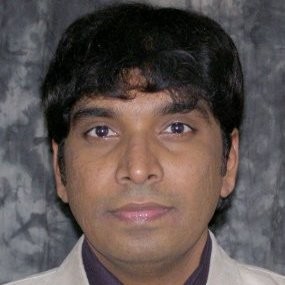
M Girish Chandra
TCS Research
India
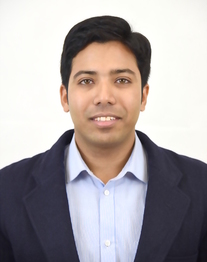
Sourav Chatterjee
TCS Research
India
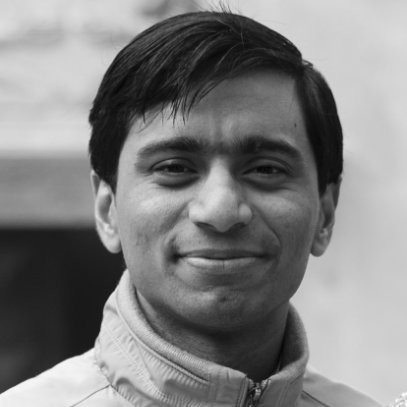
Nitin Jain
Technical University of Denmark
Denmark
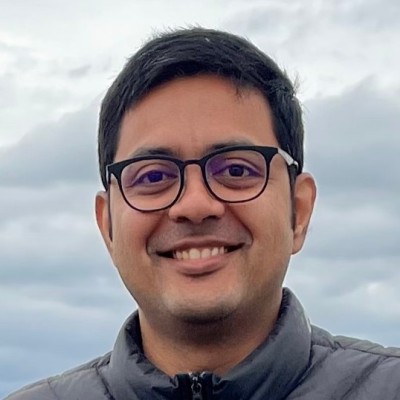
Kaushik Seshadreesan
University of Pittsburgh
USA
